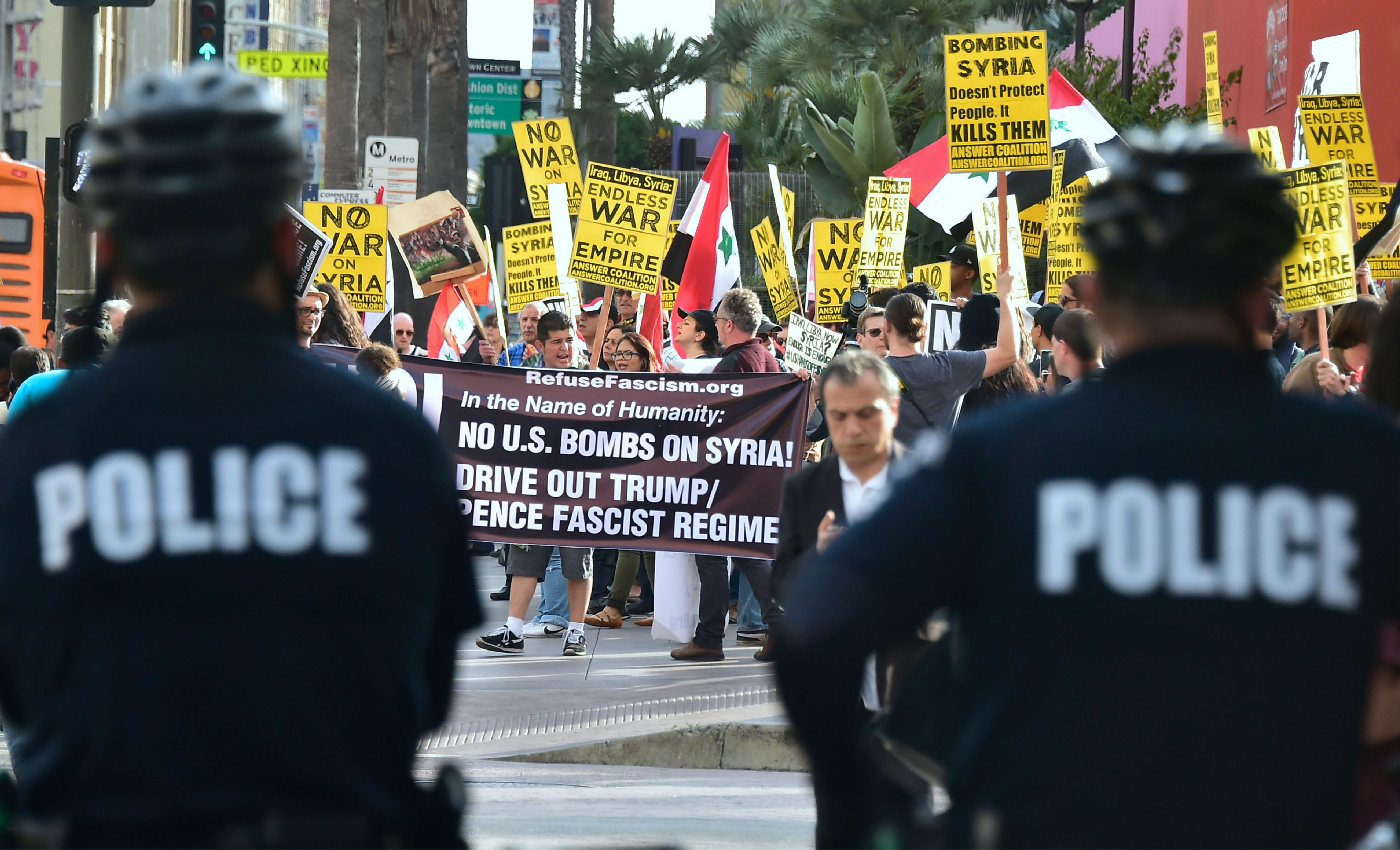A brief guide to who supports who in Syria
In a conflict involving countries far beyond the Syrian borders, we take a look at the nations involved and the sides they are on

A free daily email with the biggest news stories of the day – and the best features from TheWeek.com
You are now subscribed
Your newsletter sign-up was successful
Syria's conflict is often called a civil war, but the reality is it spills across the country's borders and involves some of the most powerful countries in the world.
So who is backing President Bashar al-Assad and his government and who believes peace can only be achieved by the removal of his regime?
Supporting the Syrian government
The Week
Escape your echo chamber. Get the facts behind the news, plus analysis from multiple perspectives.

Sign up for The Week's Free Newsletters
From our morning news briefing to a weekly Good News Newsletter, get the best of The Week delivered directly to your inbox.
From our morning news briefing to a weekly Good News Newsletter, get the best of The Week delivered directly to your inbox.
That Assad has survived while presiding over six years of civil war in Syria is due in large part, says CNN, to the military, diplomatic and economic support provided by Russia. Syria has for decades been one of Moscow's strongest allies in the Middle East.
Russian President Vladimir Putin's apparently unwavering support for his Syrian counterpart has had the effect of boosting Russia's reputation as an international power and Putin's standing as a leader to be reckoned with.
A free daily email with the biggest news stories of the day – and the best features from TheWeek.com
The Syrian conflict is, among other things, a proxy war through which the regional Shia-Sunni Muslim rivalry between Iran and Saudi Arabia has been played out. The fact that a high-ranking Iranian politician four years ago referred to Syria as "the 35th province of Iran" reflects its strategic importance for Tehran.
Although it denies the presence of its combat troops in Syria, Iran has provided arms, military advisers and financial support to the Assad regime. Meanwhile, Lebanon's Tehran-backed Hezbollah movement has sent thousands of fighters to Syria.
Opposing the Syrian government
The US
The United States was consistently critical of the behaviour of the Assad regime under Barack Obama but did not take any direct military action. US air strikes in Syria from 2014 were aimed at Islamic State and not the regime.
Days before the Idlib chemical weapon attack, Secretary of State Rex Tillerson said the "longer-term status of President Assad will be decided by the Syrian people" - but Donald Trump's administration may now be reviewing its policy on the country.
Turkey
Turkey is a crucial regional component in the conflict, sharing a long and porous border with Syria through which thousands of fighters and hundreds of thousands of refugees have flowed.
Turkish support for rebel groups fighting in Syria is complicated by the presence of the Kurdish People's Protection Units, the YPG. The Kurds, like Turkey, have been battling IS, but Ankara is worried that Syrian Kurds could establish a contiguous autonomous region along its border, strengthening the position of Kurds inside Turkey itself.
Saudi Arabia
Alongside other Gulf states and Jordan, Saudi Arabia has provided money and weapons to insurgent groups fighting the Syrian regime and Islamic State. The Saudi position, says the BBC, is that Assad cannot be part of a solution to the conflict and must hand over power to a transition administration or be removed by force.
-
 Health insurance: Premiums soar as ACA subsidies end
Health insurance: Premiums soar as ACA subsidies endFeature 1.4 million people have dropped coverage
-
 Anthropic: AI triggers the ‘SaaSpocalypse’
Anthropic: AI triggers the ‘SaaSpocalypse’Feature A grim reaper for software services?
-
 NIH director Bhattacharya tapped as acting CDC head
NIH director Bhattacharya tapped as acting CDC headSpeed Read Jay Bhattacharya, a critic of the CDC’s Covid-19 response, will now lead the Centers for Disease Control and Prevention
-
 Will increasing tensions with Iran boil over into war?
Will increasing tensions with Iran boil over into war?Today’s Big Question President Donald Trump has recently been threatening the country
-
 Corruption: The spy sheikh and the president
Corruption: The spy sheikh and the presidentFeature Trump is at the center of another scandal
-
 Putin’s shadow war
Putin’s shadow warFeature The Kremlin is waging a campaign of sabotage and subversion against Ukraine’s allies in the West
-
 Rubio boosts Orbán ahead of Hungary election
Rubio boosts Orbán ahead of Hungary electionSpeed Read Far-right nationalist Prime Minister Viktor Orbán is facing a tough re-election fight after many years in power
-
 Alexei Navalny and Russia’s history of poisonings
Alexei Navalny and Russia’s history of poisoningsThe Explainer ‘Precise’ and ‘deniable’, the Kremlin’s use of poison to silence critics has become a ’geopolitical signature flourish’
-
 Greenland’s capital becomes ground zero for the country’s diplomatic straits
Greenland’s capital becomes ground zero for the country’s diplomatic straitsIN THE SPOTLIGHT A flurry of new consular activity in Nuuk shows how important Greenland has become to Europeans’ anxiety about American imperialism
-
 What happens now that the US-Russia nuclear treaty is expiring?
What happens now that the US-Russia nuclear treaty is expiring?TODAY’S BIG QUESTION Weapons experts worry that the end of the New START treaty marks the beginning of a 21st-century atomic arms race
-
 Epstein files topple law CEO, roil UK government
Epstein files topple law CEO, roil UK governmentSpeed Read Peter Mandelson, Britain’s former ambassador to the US, is caught up in the scandal